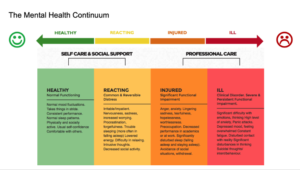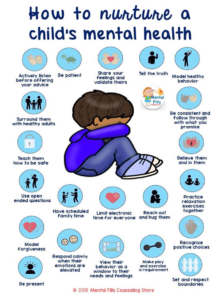Wellbeing
At Surfside we are working together to build a positive learning environment that promotes and supports children’s academic learning and their social and emotional wellbeing. This is much more than ‘being happy’ and follows a strength and skills-based approach.
We actively listened to the voice of staff, students and parents and decided that RESPECT, HONESTY, TEAMWORK and ACHIEVEMENT are the values that reflect who we are and what we do.
These values have been further unpacked to create a matrix of expectations to explicitly teach these behaviours.
A matrix is a clear and concise guide for all members of our school community that communicates our commitment to each other.
Our values, the matrix and other behaviour support strategies are the work of the School Wide Positive Behaviour Initiative, our Social and Emotional Learning curriculum and Respectful Relationships they bring to life our goal of “Growing Great Kids”
We have been a Lead School in the implementation of the Respectful Relationships curriculum since its inception. The resources have been developed by world-leading experts from Deakin University and the Melbourne Graduate School of Education. These age-appropriate resources provide the means for students to learn and practice social skills and apply them in a positive way to learning.
This curriculum has 8 topics and operates on a 2 year cycle;
| Year 1 | Year 2 | ||
| Term 1 | Emotional Literacy | Term 1 | Positive Coping |
| Term 2 | Personal Strengths | Term 2 | Stress Management |
| Term 3 | Gender and Identity | Term 3 | Positive Gender relations |
| Term 4 | Problem Solving | Term 4 | Help Seeking |
Behaviour
We pride ourselves on building strong relationships with our students and don’t take lightly the trust put in us by parents to teach, guide and watch over their children. We work together to build communities that are places of safety, belonging and positive emotions. We structure the school day to maximise student potential for engagement and connection.
At Surfside we integrate wellbeing principles that nurture growth, identify strengths, build relational capacity, develop curiosity and a love of learning.
Our School Wide Positive Behaviour Initiatives helped us to identify behaviours that do not meet our expectations and ways that we can utilise these incidents as opportunities to teach and reinforce our school values. This has allowed us to develop new habits through Restorative Practice that is grounded in the principle that when something happened, it harms and damages relationships. We ask ‘Who has been affected?’ and ‘what do we need to do to fix things?’.
We know all children can, will and do make mistakes in order to learn and these mistakes are therefore an opportunity to stretch and grow. All incidents are recorded on Compass and help to guide the support provided to our community. The student’s know this process as “Muck Up”, “Own Up”, “Fix Up” and Move On”. The habits of Restorative practice are inclusive, create community, assist with problem solving around day to day difficulties, build confidence and develop respect.
Mental Health Support at Surfside Primary School
Surfside Primary School supports the mental health of all our students through a number of whole school initiatives and curriculum areas, as well as individually, through our Mental Health and Wellbeing Coordinator, and Wellbeing and PSD Coordinator. Surfside Primary School continues to work in connection with community-based health services and provide sensitive and confidential referrals which enables students and families to be linked in with a range of appropriate services.
“We’re ensuring our kids are happy, healthy, active and resilient so they can focus on learning and have the best opportunity to succeed in education and life. Mental health among students is one of the biggest concerns raised by both parents and teachers – this is a first step in looking at what more we can do in our schools to address this issue,” – Minister for Education James Merlino.

Social-Emotional Learning (SEL) TOP
Here at Surfside our SEL Curriculum is derived from evidence based, research rich programs such as Be U, Kids Matter and Starting Right. Each week student’s across the school undertake a lesson specifically targeted to address the SEL curriculum. This may be a Respectful Relationship lesson, Zones of Regulation, School Wide Positive Behaviour Support or supporting our School Values. We understand that learning, success and positive outcomes are greatly increased when we explicitly teach SEL skills and personal and social capabilities.
School Wide Positive Behaviour Support
School-wide positive behaviour support (SWPBS) is a framework that brings together school communities to develop positive, safe, supportive learning cultures. SWPBS assists schools to improve social, emotional, behavioural and academic outcomes for children and young people.
Here at Surfside SWPBS enables teachers and students to have more time to focus on relationships and classroom instruction and increases respectful and positive behaviour. SWPBS allows students and staff to benefit from improved social-emotional wellbeing, positive and respectful relationships, and a predictable learning environment with improved safety and increased attendance.
Respectful Relationships
Respectful Relationships supports schools and early childhood settings to promote and model respect, positive attitudes and behaviours. The Respectful Relationship curriculum taught through from Foundation to grade 6 each week teaches our children how to build healthy relationships, resilience and confidence.
This whole-school approach means that here at Surfside we review our existing procedures and culture to ensure that we continue to model respectful relationships and gender equality practices across the entire school community.
Zones of Regulation
The Zones of Regulation framework and curriculum teaches students scaffolded skills toward developing a metacognitive pathway to build awareness of their feelings/internal state and utilize a variety of tools and strategies for regulation, prosocial skills, self-care, and overall wellness. This includes exploring tools and strategies for mindfulness, sensory integration, movement, thinking strategies, wellness, and healthy connection with others. The Zones of Regulation provides a common language and compassionate framework to support positive mental health and skill development for all, while serving as an inclusion strategy for neuro-diverse learners, those who have experienced trauma, and/or have specific needs in terms of social, emotional, and behavioural development.
The Zones of Regulation creates a systematic approach to teach regulation by categorizing all the different ways we feel and states of alertness we experience into four concrete coloured zones. Integrating in cognitive behaviour therapy, students build skills in emotional and sensory regulation, executive functioning, and social cognition. The framework is designed to help move students toward more independent regulation while also honouring and respecting each student and their unique self.




